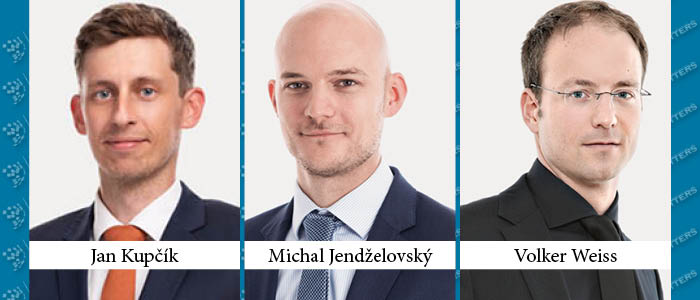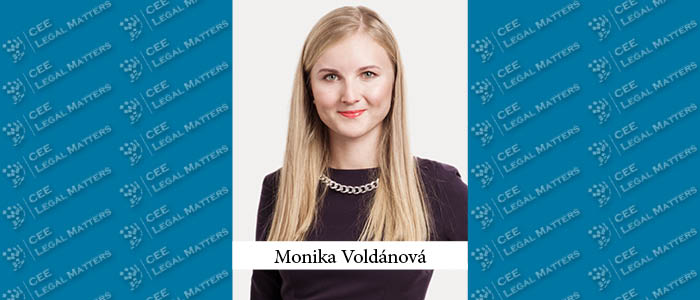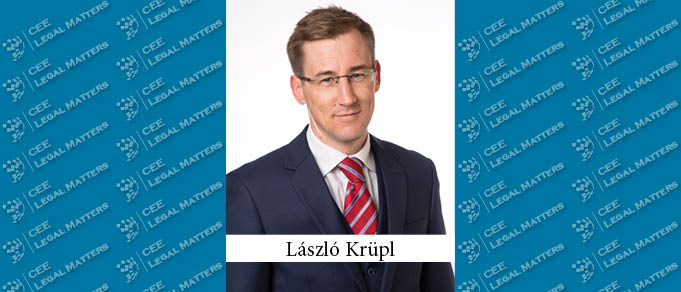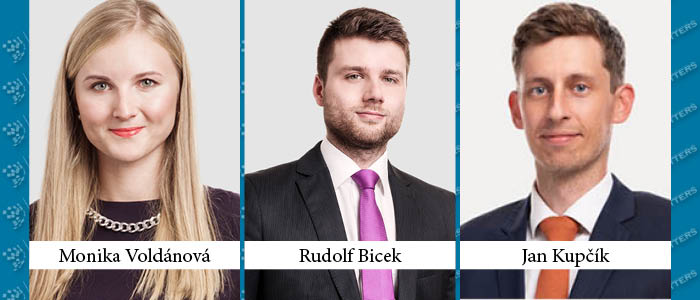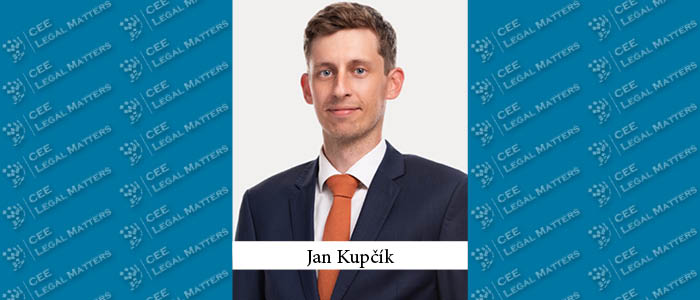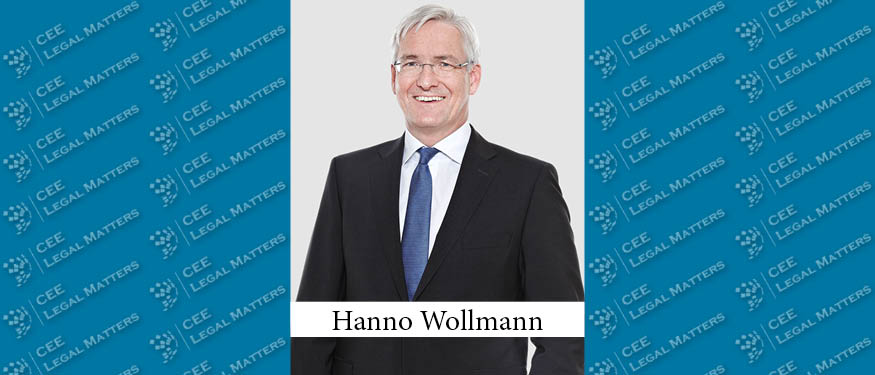On 28 April 2023 the European Commission ("Commission") put forth a proposal (Link) to revise Directive (EU) 2015/2366 (Payment Services Directive, "PSD2"), which was adopted on the EU level in 2015 and transposed into Austrian law by the Payment Services Act (Zahlungsdienstegesetz 2018 – ZaDiG 2018).
Schoenherr Successful for Jaegermeister in Trademark Dispute Before Austrian Supreme Court
Schoenherr has successfully protected the trademark rights of Jaegermeister in a dispute regarding their imitation by a discount private label by obtaining an EU-wide preliminary injunction before Austria's Supreme Court of Justice.
Brandl Talos, Schoenherr, Schindler Attorneys, and FWP Advise on Sale of Ready2Order to Zucchetti
Brandl Talos has advised the shareholders on their sale of Ready2Order to Zucchetti. Schoenherr advised Ready2Order early investor Franz Hoerhager, while Schindler Attorneys advised Co-Founder Christoph Zhu on the transaction. Fellner Wratzfeld & Partner advised the Zucchetti Group.
Schoenherr Advises Verbund on Acquisition of Solarpower Holding and Subsidiaries
Schoenherr has advised Verbund – via its Verbund Energy4Business and Verbund Thermal Power subsidiaries – on the acquisition of all shares in Solarpower Holding together with its subsidiaries MSP Solarpower and IFIX-Solar from its shareholder. SCWP Schindhelm reportedly advised the sellers.
The FSR's M&A tool
The so-called M&A tool is probably the most impactful element of the Foreign Subsidies Regulation (FSR), affecting many global and even local transactions. A first read of the FSR's provisions may give the incorrect impression that the tool covers only few large transactions, but its impact may be much more significant than this. Let us take a closer look at what to keep in mind when engaging in an M&A transaction process.
Binder Groesswang Advises Biome Diagnostics on Investment Round with SanusX
Binder Groesswang has advised microbiome technology R&D company Biome Diagnostics on its investment round with Uniqa Group company SanusX. Schoenherr reportedly advised the investors.
Regulation of Nicotine Pouches in the Czech Republic
Nicotine pouches are small pouches or pads containing nicotine and no tobacco. They are placed under the lip so that the nicotine is absorbed into the body through the mucous membrane. This alternative to traditional tobacco products, especially cigarettes, has been growing in popularity in recent years.
Hungary: Financing for Agriculture
Hungary’s agricultural sector has a rich historical tradition but faces challenges due to insufficient financing. The European Union’s Common Agricultural Policy (CAP) provides funding for farm restructuring and market support, while Hungarian farmers can seek financing from banks and cooperatives. The Hungarian government has also established various programs to provide financing for agriculture, including subsidies for machinery and technology investments and funding for training.
CEELM Top 10: Most-Read Briefings
The CEELM Top 10 series looks back over the past ten years and celebrates the milestones we have achieved together. First up: most-read Briefings, with each article featuring a short description reflecting the authors’ opinion at the time.
Schoenherr and PHH Advise on HS Timber and Hat Trick Joint Venture
Schoenherr has advised HS Timber Industrieinvest on establishing a joint venture with Hat Trick to build a sawmill in Argentina and produce and trade logs worldwide. PHH advised Hat Trick.
Schoenherr Advises Audiotonix Group on Sonible Acquisition
Schoenherr, working with the UK's Marriott Harrison, has advised the professional audio mixing console manufacturer Audiotonix Group on its acquisition of Austrian start-up Sonible. Held Berdnik Astner & Partner and RafterMarsh reportedly advised the sellers.
Schoenherr and Wolf Theiss Advise on Raiffeisen-Landesbank Steiermark EUR 500 Million Issuance
Schoenherr has advised the joint lead managers on Raiffeisen-Landesbank Steiermark’s EUR 500 million issuance of mortgage-covered bonds. Wolf Theiss advised the issuer.
Did You Know: 11 Firms Atop 2023 Energy/Natural Resources Leaderboard
Did You Know that a total of 11 law firms have worked on four or more reported Energy/Natural Resources deals in CEE so far this year? According to the Activity Rankings function of the CEELMDirect website, the leaderboard is led by Norton Rose Fulbright, which has worked on ten Energy/Natural Resources deals reported since January 1, 2023.
Is the German Supply Chain Due Diligence Act Relevant for Czech Businesses?
The German Supply Chain Due Diligence Act (Lieferkettensorgfaltspflichtengesetz; "LkSG") is effective from 1 January 2023 for companies and branches based in Germany with more than 3,000 employees, with further extension to companies with more than 1,000 employees from 1 January 2024.
Schoenherr Advises Rhone Capital on Public Cash Offer for RHI Magnesita Stake
Schoenherr, working alongside Sullivan & Cromwell, has advised Rhone Capital on its public cash offer for up to 29.9% of the share capital of RHI Magnesita.
Czech Competition Authority Blocks a Merger: Exception or Start of New Trend?
Last week, the Czech Competition Authority ("CCA") blocked an acquisition of part of První novinová společnost a.s. ("PNS") by Česká pošta, s.p. ("Czech Post"). While it is impossible to foresee the exact future of merger control enforcement in the Czech Republic, what is clear is that the CCA with this decision, whether intentionally or not, has sent a message to the market that it is ready to take the hardest line on a merger if it raises competition concerns. We summarize main details of the case and additional thoughts on its impact below.
Sustainability-linked Loans in Hungary
Sustainability is crucial for ensuring the long-term wellbeing of the planet and future generations. It encompasses responsible practices that preserve natural resources, mitigate climate change, and promote social and economic balance, ultimately creating a harmonious and sustainable world for all.
What is a Foreign Subsidy?
Regulation (EU) 2022/2560 on Foreign Subsidies (the "FSR") aims to address distortions caused by foreign subsidies in the single market. In this part of our FSR Insight Series, we explain the fundamental notion of what constitutes a "foreign subsidy" within the meaning of the FSR. You will find a basic definition in Article 3 FSR, with some further considerations in recitals 11 to 16 of the Regulation.





